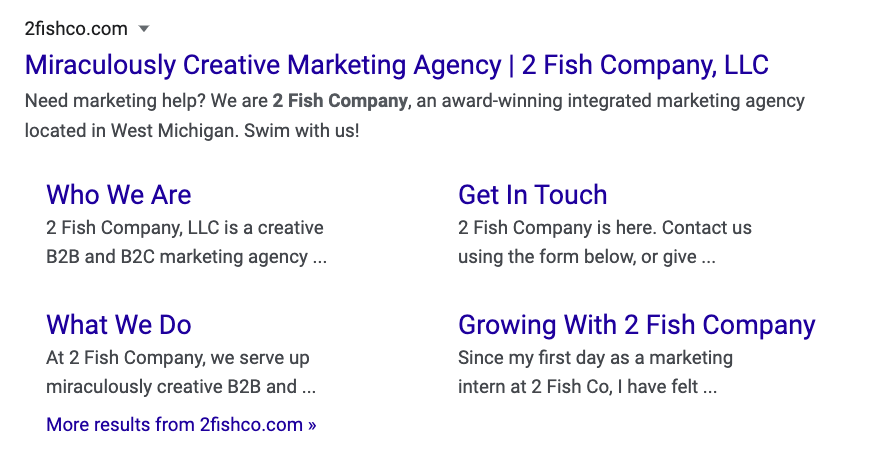- Miscellaneous

Here’s the dilemma: There’s only so much room in the marketing budget. You want to get into search marketing, but it’s looking like you can’t do SEO and SEM. It makes sense to pick just one, right? But which one?
It’s something we see clients struggle with from time to time. Typically, they’re inclined to pick SEM, since it’s generally fast to set up—while SEO can involve an overhaul of site structure—and can show quick “results.”
But here’s what we always recommend: Start with a strong foundation of SEO, and then add SEM if it makes sense for you.
The Basics
For those who are just starting to think about search marketing, here’s a primer.
Search marketing involves tactics for getting your business’s website seen in search engines like Google and Yahoo. Since most consumers start their search for products or services online these days, search is an extremely important aspect of digital marketing. You want your website to pop up for search queries that relate to your product or service, and the higher it is in search rankings, the better. First page? Great. First three results? Amazing. Top spot? You’ve won the game! (But now have to defend your position, since results shift often.)
The tactics that make up search marketing are search engine optimization and search engine marketing. Search engine optimization (SEO) is the organic (unpaid) method of getting your website to rank higher in search engine results. It involves changes to your site and its content.

An example of an organic (unpaid) search result.
Search engine marketing (SEM) is the paid method of getting seen in search. You set up pay-per-click (PPC) ads, and they appear above or below search results. (SEM ads are clearly marked “Ad.”)

An example of an SEM ad in search results. Note the “Ad” designation in the upper-left corner.
You can read further about search marketing basics in our article Marketing 101: What You Need to Know About Search.
So . . . SEO or SEM?
One isn’t actually better than the other. They serve different purposes.
SEO is a longer-term, ongoing strategy based on creating an excellent user experience on your site and enabling search engine “crawlers” to see and understand it. SEM is a shorter-term strategy for driving awareness and site visits.
People like the “shorter-term” aspect of SEM, especially when compared to the many fixes (big and small) that can come to light in an SEO audit, not to mention the ongoing content needs of SEO. Setting up SEM ads is straightforward; pretty much anyone could get ads up and running. (Although creating truly effective ads requires professional help.) It can be tempting to think, “I’ll just get some search ads up. Maybe if I have time and money in the future, I can work on SEO.”
But here’s the thing: Good SEM performance depends on an SEO-optimized website. Sure, your SEM ads might help you quickly drive more people to your site, but then what? They might get there, be unimpressed, and leave. Plus, your ad reach will be throttled by Google if they see you’re giving your web visitors a poor experience.
A solid foundation of SEO also serves to help improve your rankings across all search engines. (Some people do, in fact, use search engines other than Google.) SEM ads only show up where you’re paying for them to show up.
Additionally, if your website isn’t the best it can be, it’s not serving visitors who come through other channels (social, email, direct) either.
Our Recommendation
So, our recommendation is to start with SEO. Do what it takes to build a really strong site, then drive more people to it through SEM. Remember: Your website is the hub of your whole digital marketing strategy. Having a solid site won’t only be good for SEO and SEM, but for all of your online marketing!
How do you actually begin SEO work? This is one of those situations in which we really recommend getting professional support. We love it when we can tell clients they can do something themselves. SEO is not one of those things, since it can be technical in nature and requires a lot of specialized knowledge. Do a search for well-reviewed agencies near you, and get going!
Have questions, or need some help getting the ball rolling on SEO? Feel free to contact us.
SHARE IT!
-
Miscellaneous
Unveiling the Power of Marketing Awards: How Recognition Transforms Client Success Stories!
-
Culture
Tools of the Trade




